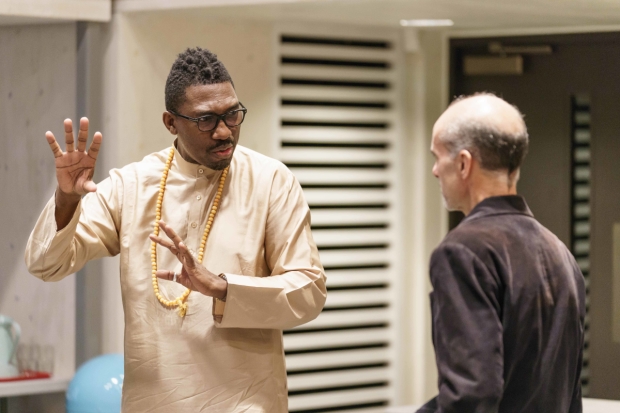Kwame Kwei-Armah is a natural leader, but there's no knowing where he'll take the Young Vic
Matt Trueman reflects on today’s news that Kwame Kwei-Armah will become the new artistic director of the Young Vic

© Manuel Harlan
Kwame Kwei-Armah‘s return to British theatre on a full-time basis is good news for a number of reasons. As the Young Vic’s artistic director, succeeding David Lan next year, he will inherit a theatre in great stead – a massive opportunity and a massive platform.
It will position him among the highest-profile cultural leaders of colour in the country at a time when we dearly need more of such figureheads. Only yesterday, the Guardian revealed that a mere 36 of the 1000 most powerful men and women in Britain were people of colour.
Kwei-Armah is a superb figurehead; a natural leader and an engaged, innovative critical thinker
An actor-turned-playwright and director, Kwei-Armah has gradually forged his way as a cultural leader. He sat on the board of the National Theatre for several years and, in 2011, programmed the World Festival of Black Arts in Senegal. For the last six years, he has been artistic director at the Centre Stage theatre in Baltimore, by all accounts successfully, overseeing a major capital refurbishment before stepping down. He is, in other words, more than qualified to take on one of the most significant, challenging leadership roles in British theatre.
In some ways, Kwei-Armah is both a prominent appointment and something of an unknown. Five years on primetime Saturday night television, playing Casualty‘s paramedic Findlay Newton, made him a household name. At the same time, six years out of the country, running a major US regional theatre, make it hard to second-guess what sort of artistic director he’ll be.
Without seeing the work, we can only tell so much about his tastes from his programming. At a glance, his Centre Stage seasons seem rather more conservative than we’ve come to expect of the Young Vic – a mix of regional premieres, adaptations and big titles shows – but a lot of that is down to context. American regional theatres come with particular challenges – subscribers, donors, audience bases – and the combination of subsidy and location should ease a lot of those pressures, freeing him up to follow his own instincts.
His best plays looked to under-represented communities and black Londoners
His recent work at the Donmar Warehouse (One Night In Miami and, next, The Lady from the Sea) suggest he’s become a subtle, strong director in his own right – albeit not in the director’s theatre mould Lan has so championed at the Young Vic. It will be interesting to see if that changes.
What’s cheering, though, is Kwei-Armah’s character. We know he is a brilliant cultural commentator from appearances on BBC Two’s Newsnight Review, Question Time and the Culture Show. That, in particular, will stand him in good stead as Lan’s successor. Like the South African, he is a superb figurehead; a natural leader, an accomplished public speaker and an engaged, innovative critical thinker. Only last week, he spoke incisively about the direction British theatre needs to take post-Brexit, advocating an international outlook that engaged European theatremakers in particular.
It would be folly to pre-empt what shape Kwei-Armah’s Young Vic might take, but I’d be very surprised if it didn’t remain committed to social engagement. The Young Vic’s Taking Part programme, its work with local residents and other groups, has been one of the most fundamental tenets of Lan’s tenure, as has the push for diversity onstage. Kwei-Armah’s best plays, Elmina’s Kitchen and Fix Up, looked to under-represented communities and black Londoners, and his leadership in Baltimore was, by necessity, engaged with a city dogged by social and racial issues. He will, one hopes, preserve the Young Vic’s work on that front. Over the next few years, given cultural shifts underfoot, it could become the most important thing the theatre does.
















